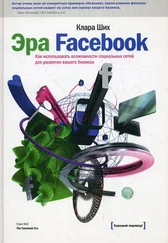1 Cover
2 Series Title
3 Title Page Facebook taina bucher polity
4 Copyright Page Copyright Page Copyright © Taina Bucher 2021 The right of Taina Bucher to be identified as Author of this Work has been asserted in accordance with the UK Copyright, Designs and Patents Act 1988. First published in 2021 by Polity Press Polity Press 65 Bridge Street Cambridge CB2 1UR, UK Polity Press 101 Station Landing Suite 300 Medford, MA 02155, USA All rights reserved. Except for the quotation of short passages for the purpose of criticism and review, no part of this publication may be reproduced, stored in a retrieval system or transmitted, in any form or by any means, electronic, mechanical, photocopying, recording or otherwise, without the prior permission of the publisher. ISBN-13: 978-1-5095-3516-3 ISBN-13: 978-1-5095-3517-0 (pb) A catalogue record for this book is available from the British Library. Library of Congress Cataloging-in-Publication Data Names: Bucher, Taina, author. Title: Facebook / Taina Bucher. Description: Medford : Polity Press, 2021. | Series: Digital media and society | Includes bibliographical references and index. | Summary: “How Facebook came to be, how it works, and why it is more powerful than ever”-- Provided by publisher. Identifiers: LCCN 2020047168 (print) | LCCN 2020047169 (ebook) | ISBN 9781509535163 (hardback) | ISBN 9781509535170 (paperback) | ISBN 9781509535187 (epub) Subjects: LCSH: Facebook (Electronic resource) | Online social networks. | Social networks--Computer network resources. Classification: LCC HM743.F33 B83 2021 (print) | LCC HM743.F33 (ebook) | DDC 302.30285--dc23 LC record available at https://lccn.loc.gov/2020047168 LC ebook record available at https://lccn.loc.gov/2020047169 by Fakenham Prepress Solutions, Fakenham, Norfolk NR21 8NL The publisher has used its best endeavours to ensure that the URLs for external websites referred to in this book are correct and active at the time of going to press. However, the publisher has no responsibility for the websites and can make no guarantee that a site will remain live or that the content is or will remain appropriate. Every effort has been made to trace all copyright holders, but if any have been overlooked the publisher will be pleased to include any necessary credits in any subsequent reprint or edition. For further information on Polity, visit our website: politybooks.com
5 Acknowledgements Acknowledgements The writing of this book is hugely indebted to senior editor at Polity Press, Mary Savigar. If Mary hadn’t approached me at the Association of Internet Researchers (AoIR) conference in late 2017 to pitch this project to me, I would never have embarked on it in the first place. I never envisioned myself writing an entire book about Facebook. Like so many of my peers, I was already quite fed up with Facebook. What more was there to say, I thought? As it turned out, quite a lot. Once I distanced myself from thinking of Facebook as a social media platform or social network site only, entire swathes of infrastructural activities became apparent. Sometimes chance encounters that plant the right seeds can be quite life-changing, as my brief meeting with Mary demonstrates. Mary, thanks for thinking of me for this project and for allowing me to prove myself wrong: Facebook is an immensely fascinating phenomenon. It has been an absolute pleasure to write this book, keeping me company amid some happy and challenging life events as Facebook calls them: childbirth, change of jobs, moving countries, pandemic. Thank you to Ellen MacDonald-Kramer and the rest of the Polity Press team for guiding me through the editorial and production process. Status update: Thank you to everyone who has either explicitly or implicitly contributed to developing the ideas in this book. Thank you: Anne Helmond, David Nieborg, my colleagues in the ‘Don’t take it personal’ project team, and the participants from the Media Aesthetics seminars at the Department of Media and Communication, University of Oslo, for reading drafts at various stages of completion and providing critical feedback. Your comments have greatly improved the final product. Thank you also to the anonymous reviewers for their time and efforts in making this a better book. I am grateful to the many people I have met at conferences, workshops, and seminars, who have provided crucial insights into different aspects of Facebook. I am especially grateful to the informants from various NGOs and human rights organizations whose input and generosity helped to shape my understanding of Facebook. Thank you also to research assistant Louise Bechmann Ødegaard Jensen for her research in the early stages of book writing. This book benefited from financial support by the ‘Digitization and Diversity’ project funded by the Research Council of Norway. Thank you to project leader Anne-Britt Gran for granting the time and resources to work on this book as part of the project. Finally, my immense gratitude goes to friends and family. You deserve so much more than a status update. Georg, your patience and support means everything. I dedicate this book to Alvar.
6 Introduction: Facebook is Facebook Facebook is Facebook Feeling Facebook Origin story A guidebook to Facebook? It’s complicated Facebook is everything Book outline Notes
7 1 Metaphors at work: Framing Facebook From town square to living room Techno-utopianism and the open internet Move fast and break things Metaphors at work Concluding remarks Notes
8 2 Of electricity and chairs: Facebook as infrastructure Electric light Chairs Concluding remarks Notes
9 3 Grounded in reality: How Facebook programs sociality How networks became social and online identity grounded in reality Whose authenticity? The big business of friendship Communal aspects of friendship Friendship as work Facebook identity – what’s in a name? Concluding remarks Notes
10 4 Engineering a platform: Facebook’s techno-economic evolution News Feed: Your personal newspaper News journalism as the model The algorithmic logic of Facebook Building an empire, becoming a platform Platform programmability The mobile revolution Concluding remarks Notes
11 5 Monetizing You: Facebook’s advertising ecosystem Monitoring and targeting YOU: The rise of behavioural advertising Facebook, the ad company Facebook ads from the advertiser’s perspective Why users are shown specific ads Concluding remarks Notes
12 6 Personalized politics: Facebook’s profiling machinery The politics of the political Elections and political campaigns Facebook’s central role in data-driven campaigning Regimes of experimentation Political advertising on Facebook Platform governance and content moderation The politics of the polluted information ecology Haunted data: Cambridge Analytica and the inertia of infrastructure Facebook in the wild: The case of dangerous speech in Myanmar Concluding remarks Notes
13 Conclusion: The many faces of Facebook Facebook as a hyperobject Becoming new More-than-social media Possibilities for the future Notes
14 References
15 Index
16 End User License Agreement
1 Cover
2 Table of Contents
3 Begin Reading
1 ii
2 iii
3 iv
4 vii
5 viii
6 1
7 2
8 3
9 4
10 5
11 6
12 7
13 8
14 9
15 10
16 11
17 12
18 13
19 14
20 15
21 16
22 17
23 18
24 19
25 20
26 21
27 22
28 23
29 24
30 25
31 26
32 27
33 28
34 29
35 30
36 31
37 32
38 33
39 34
40 35
41 36
Читать дальше












